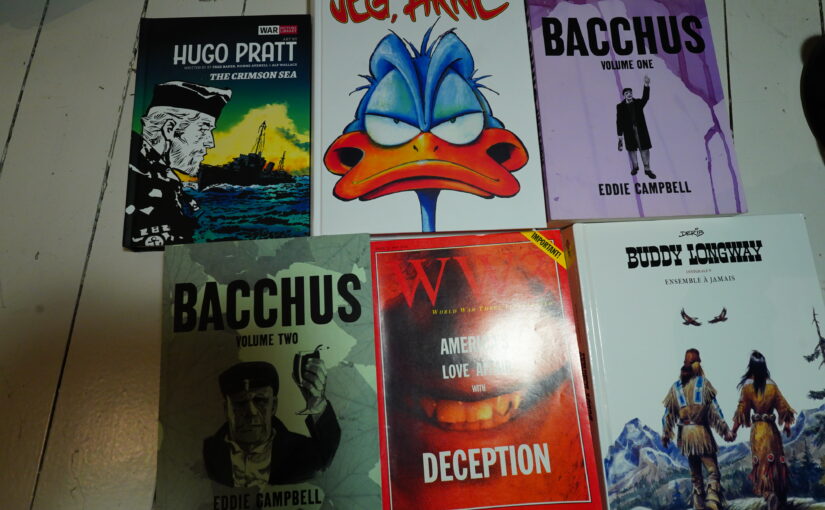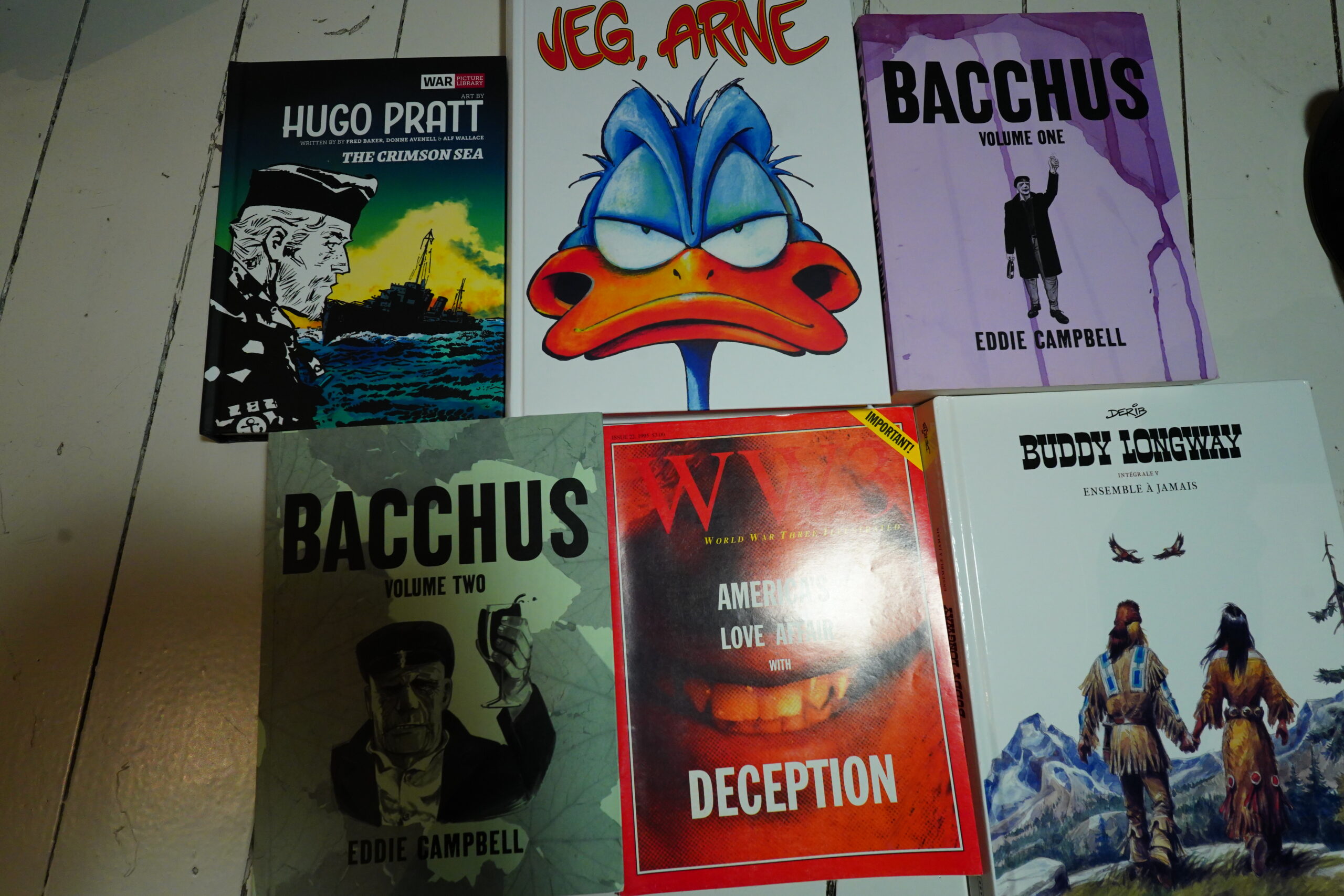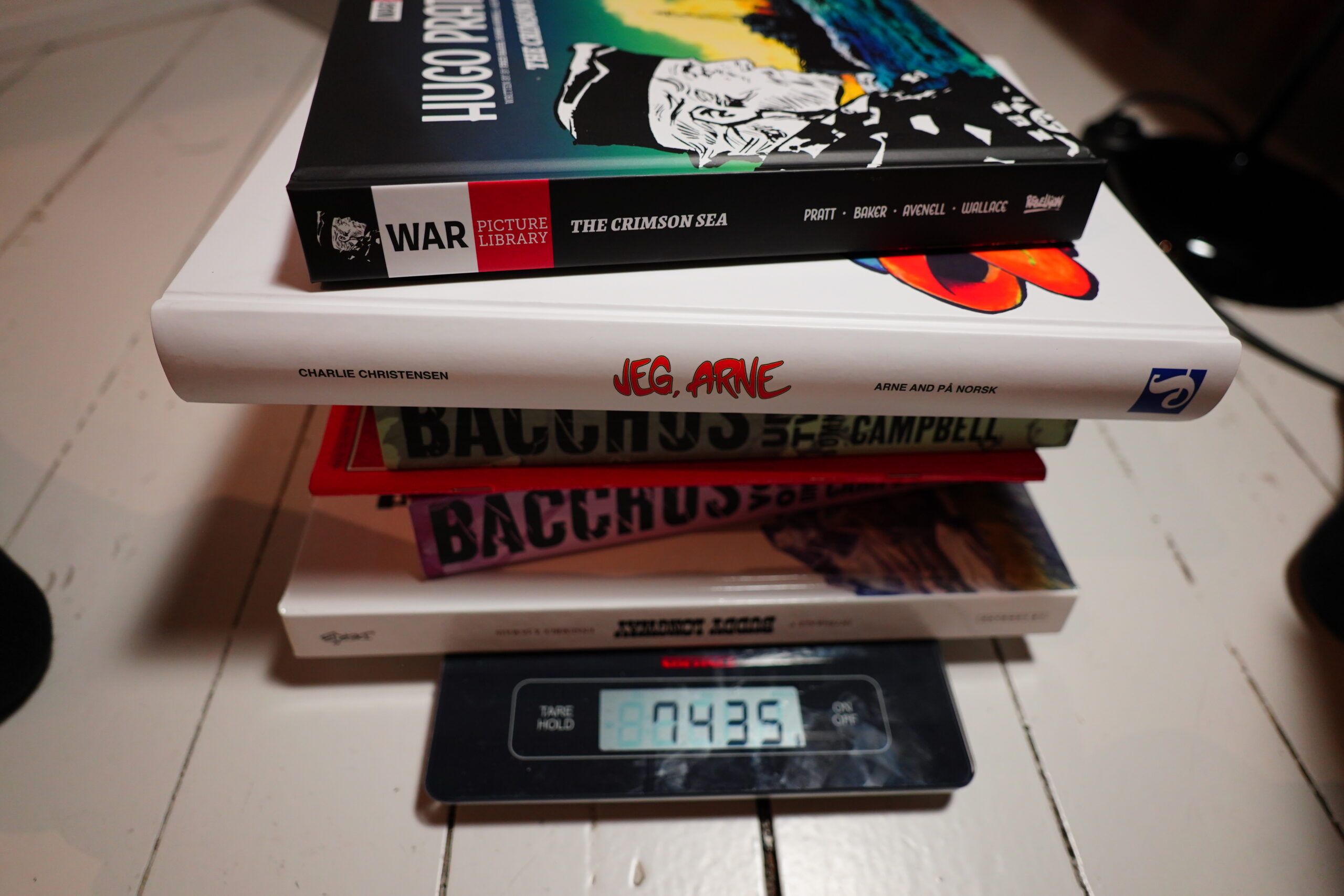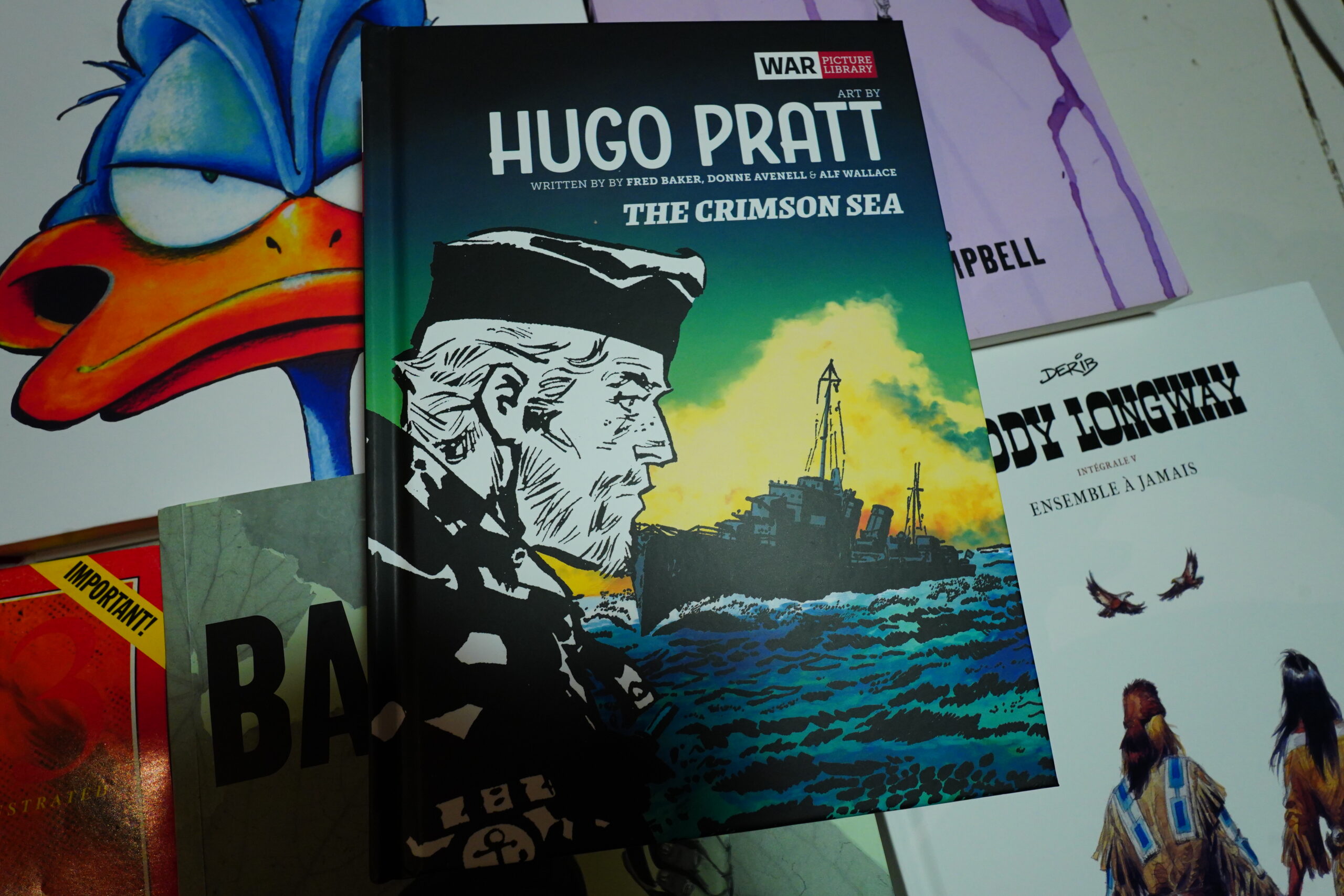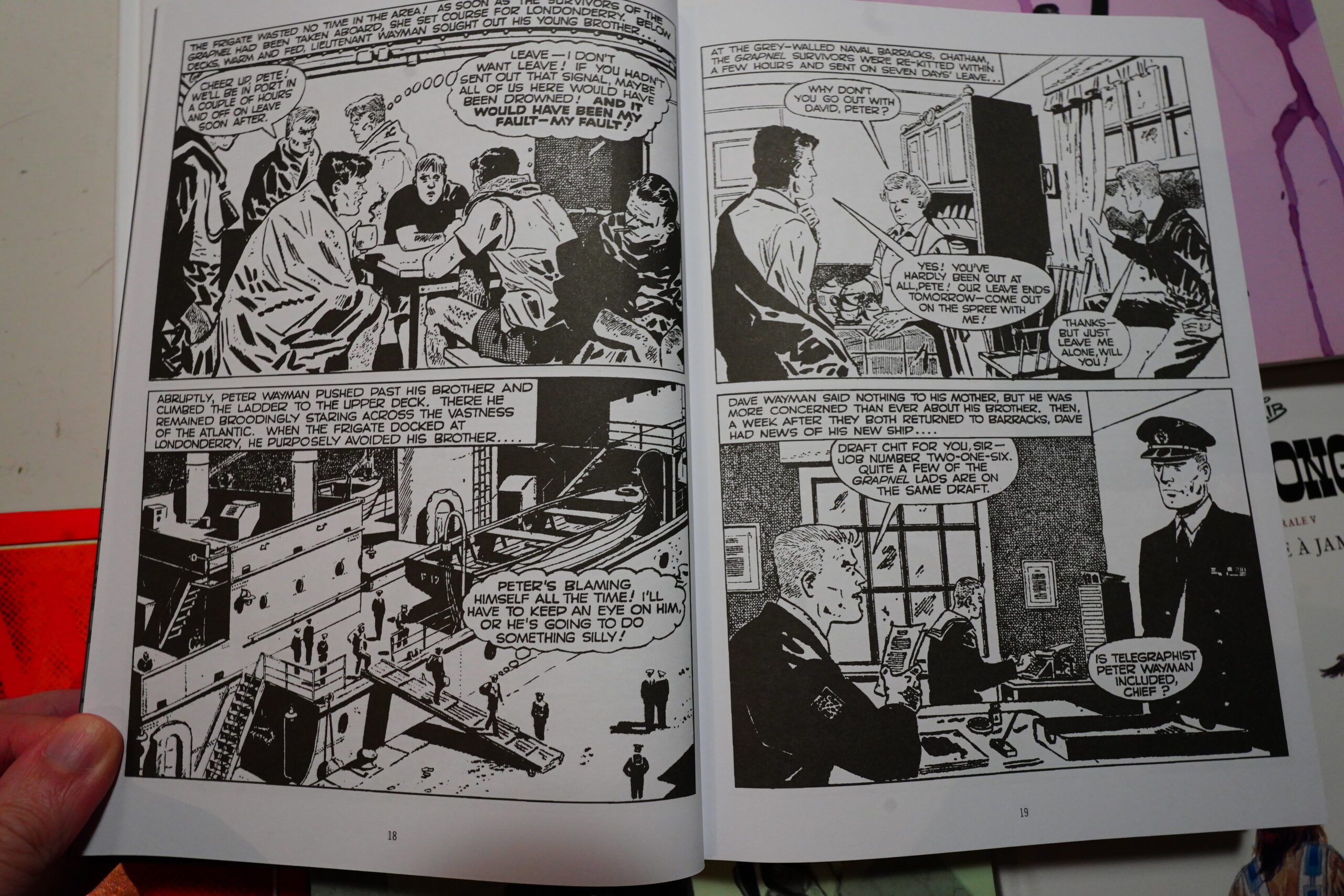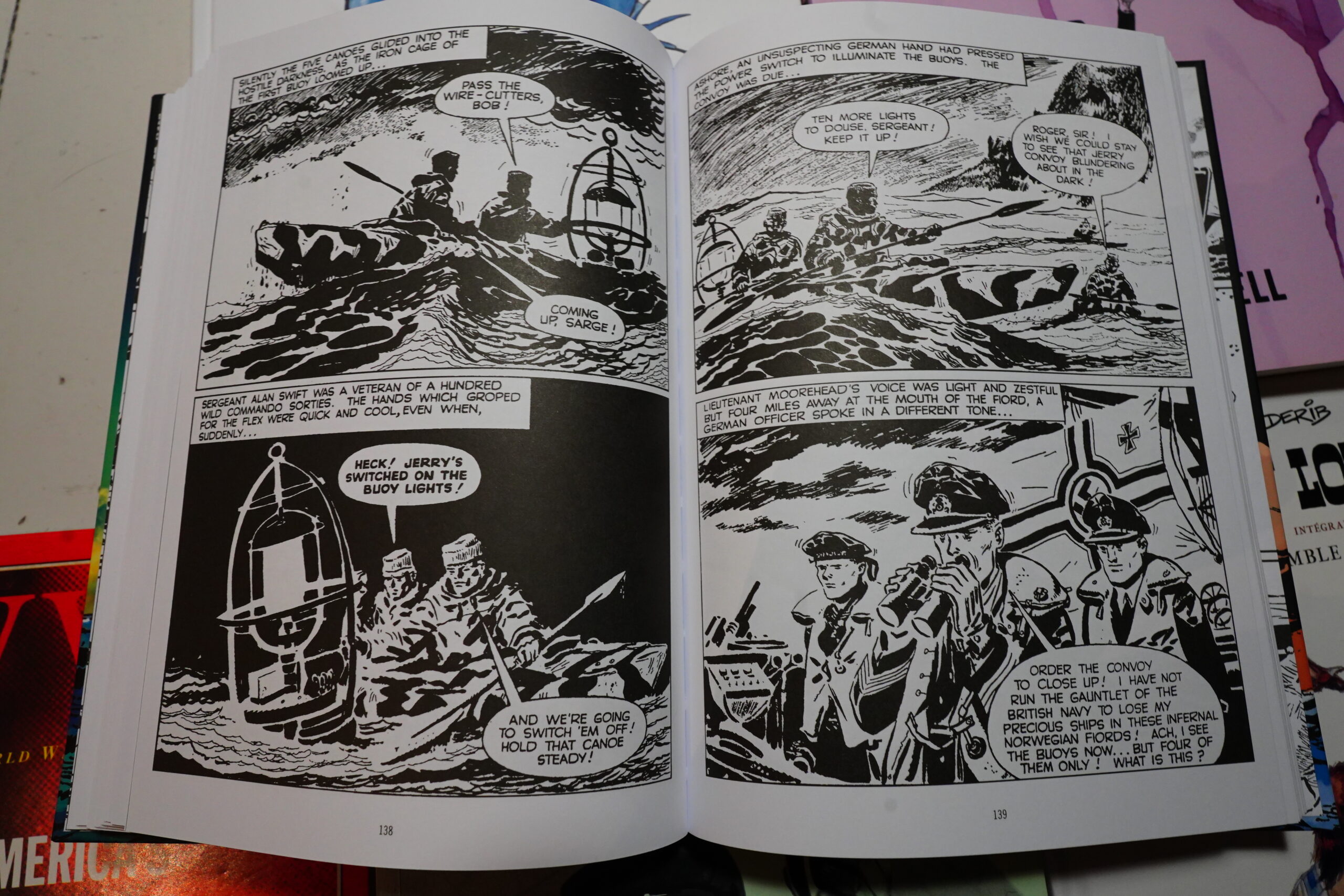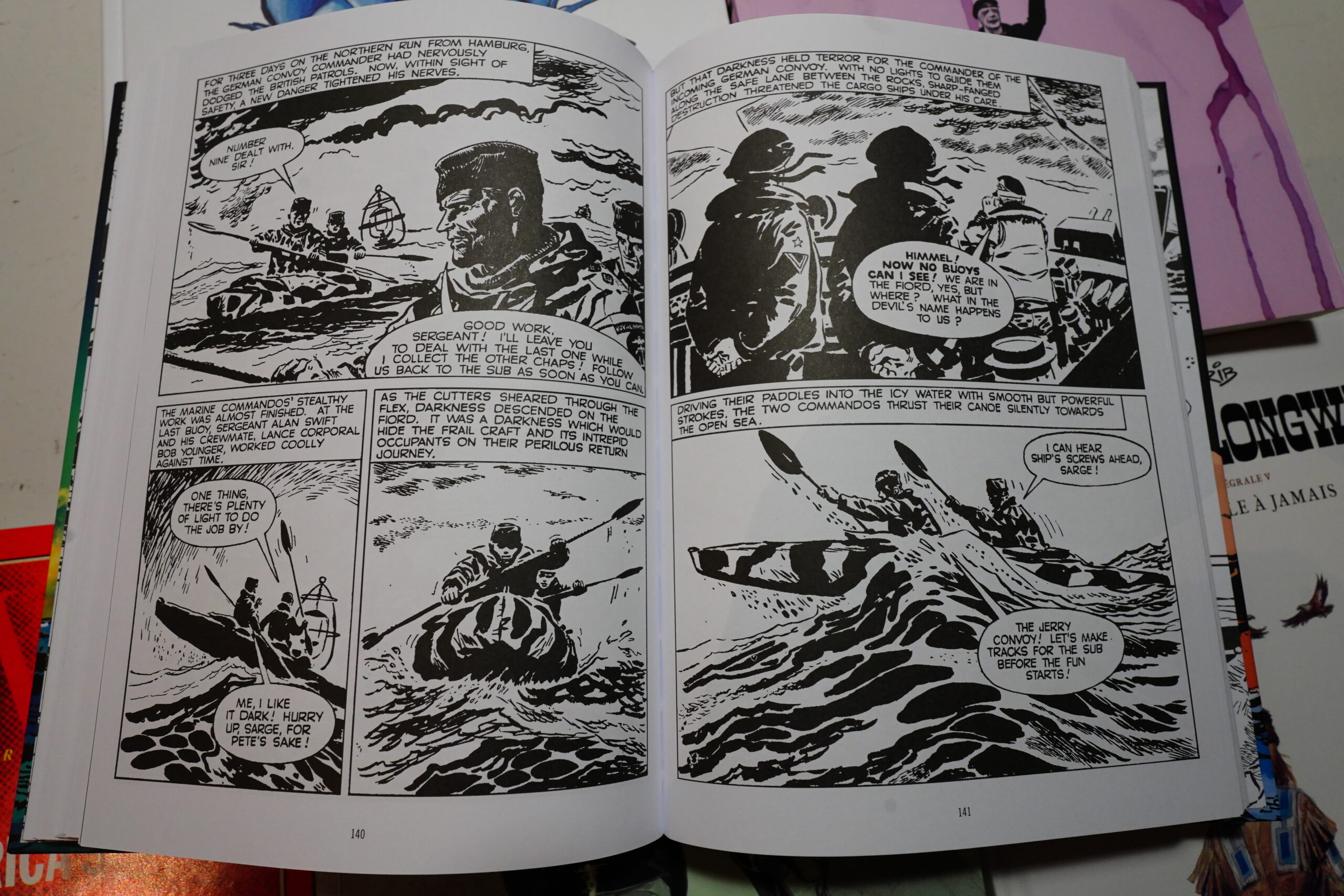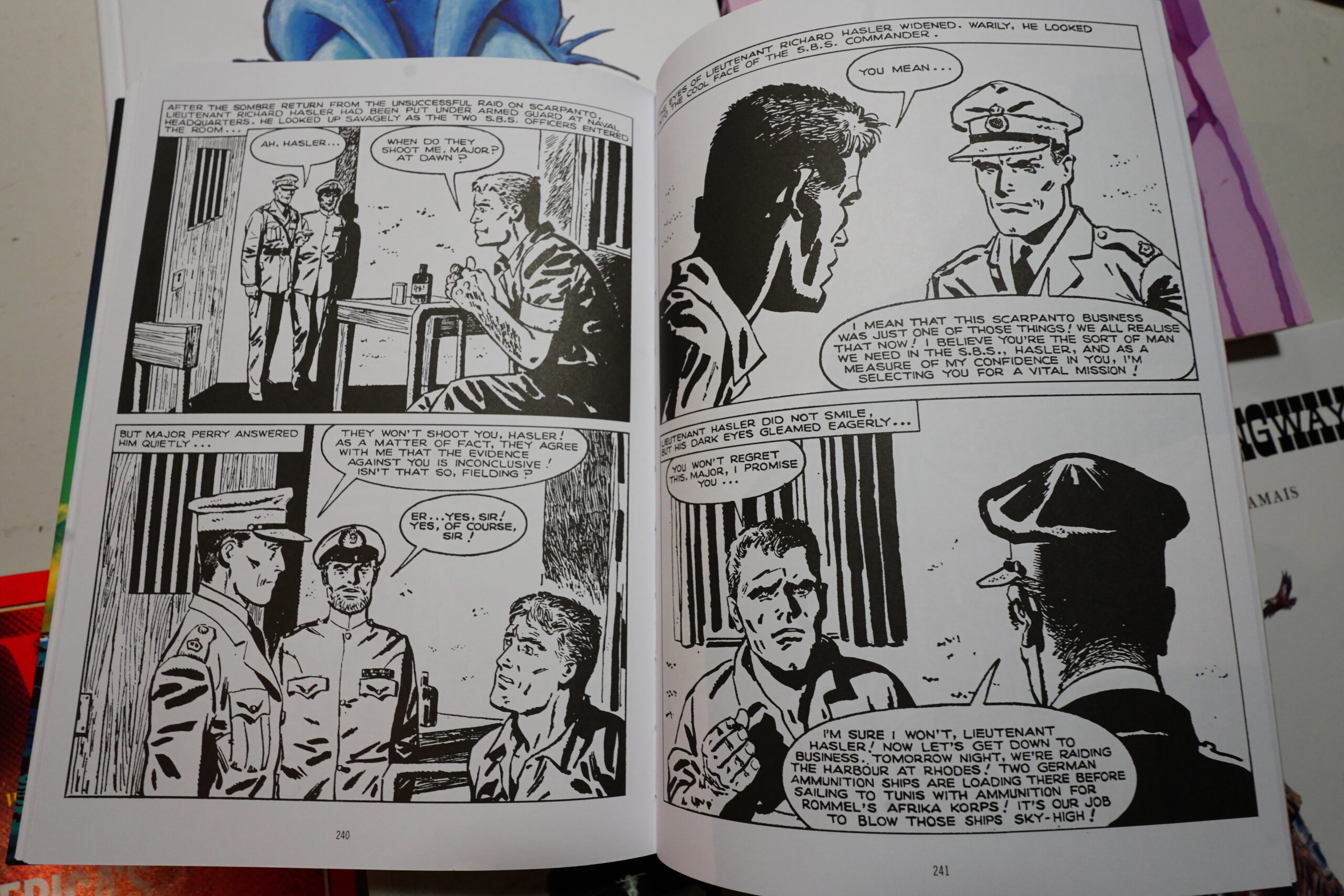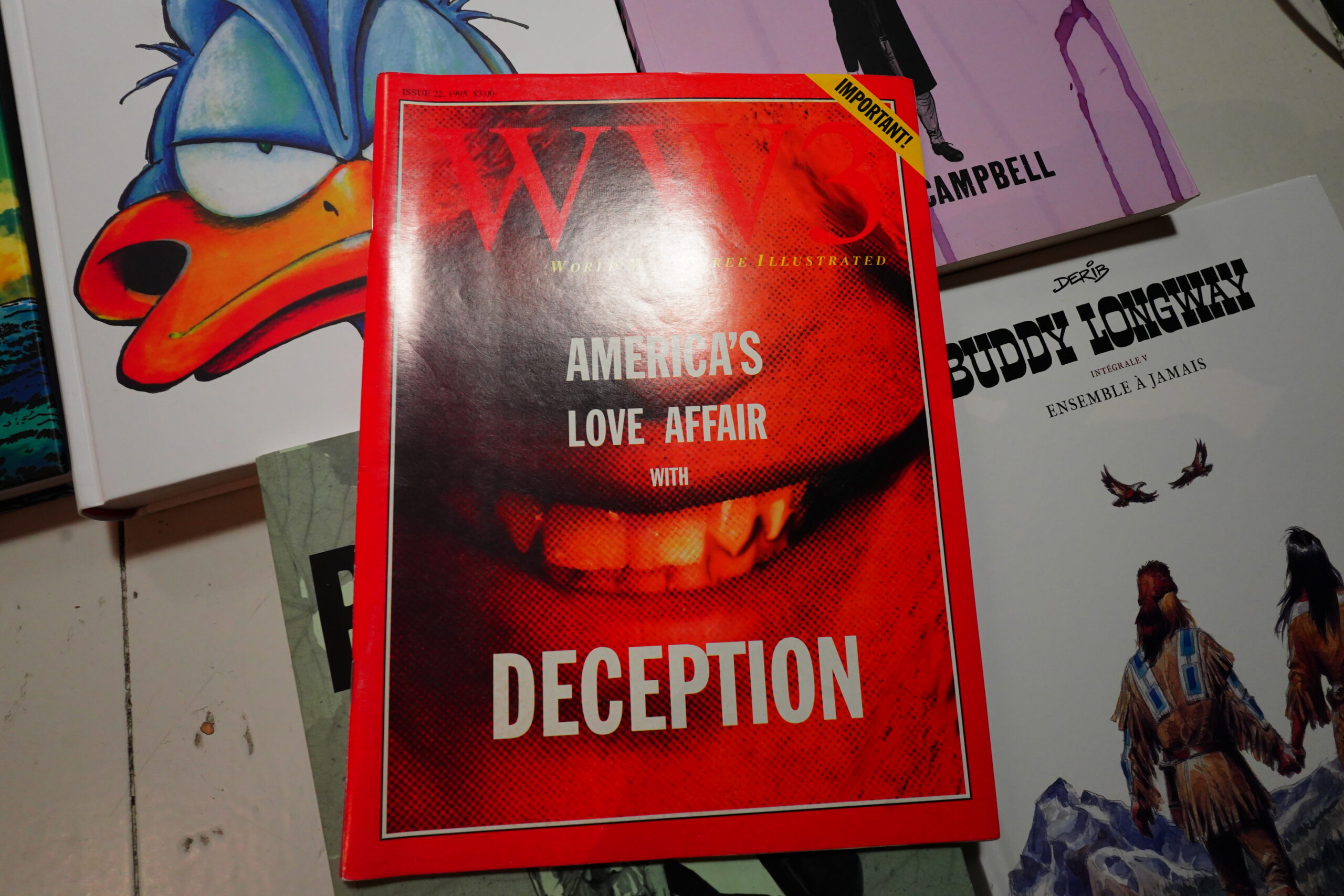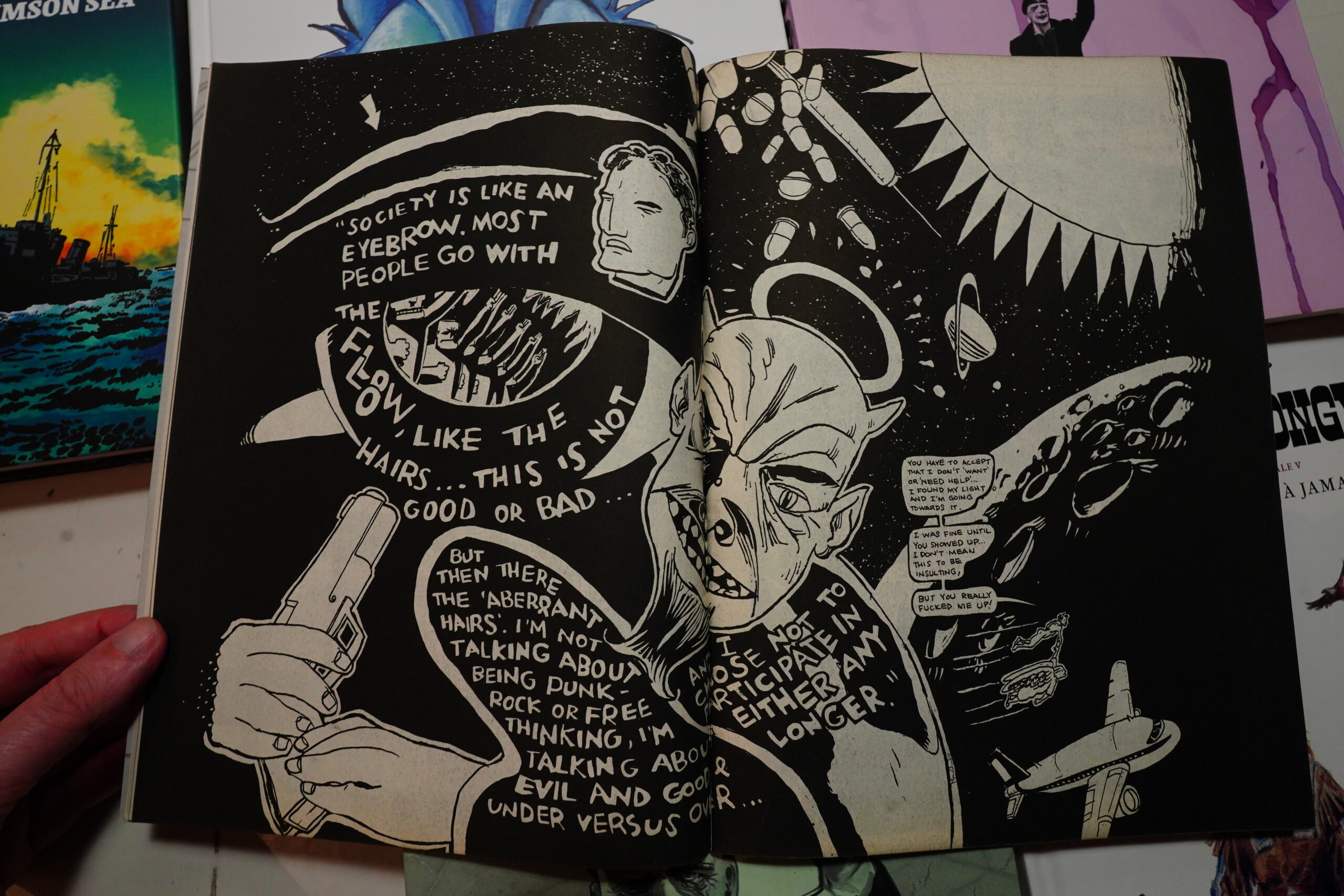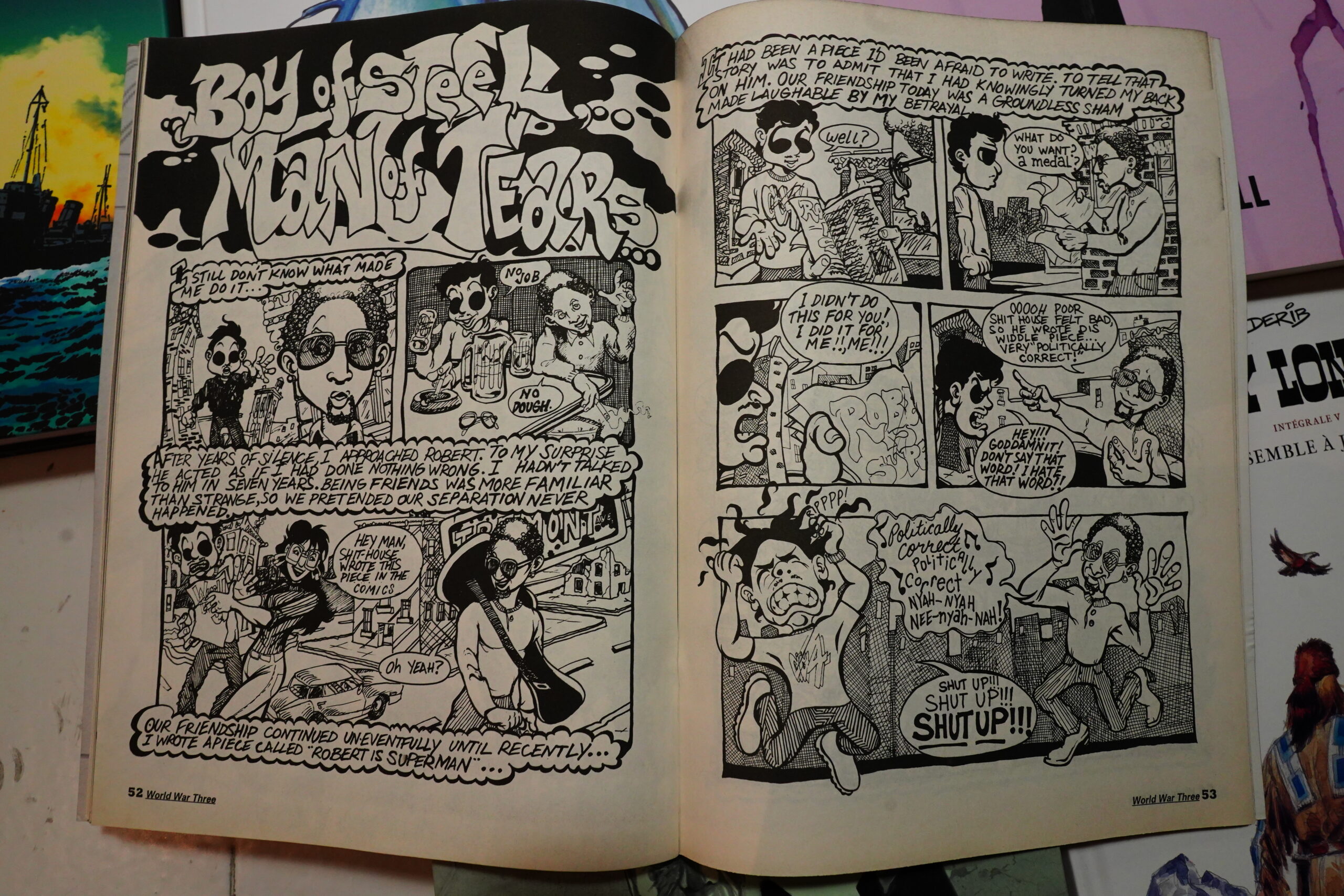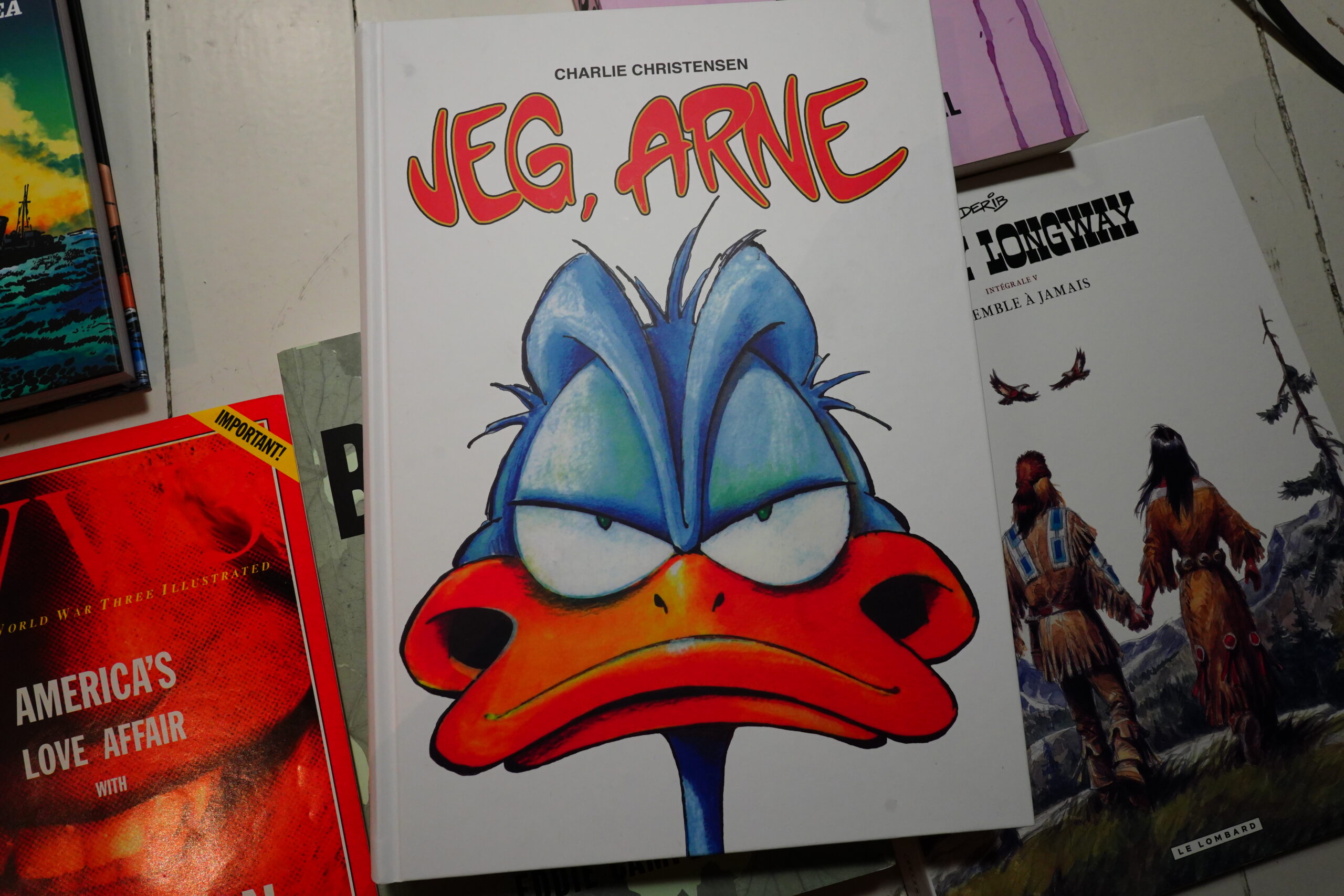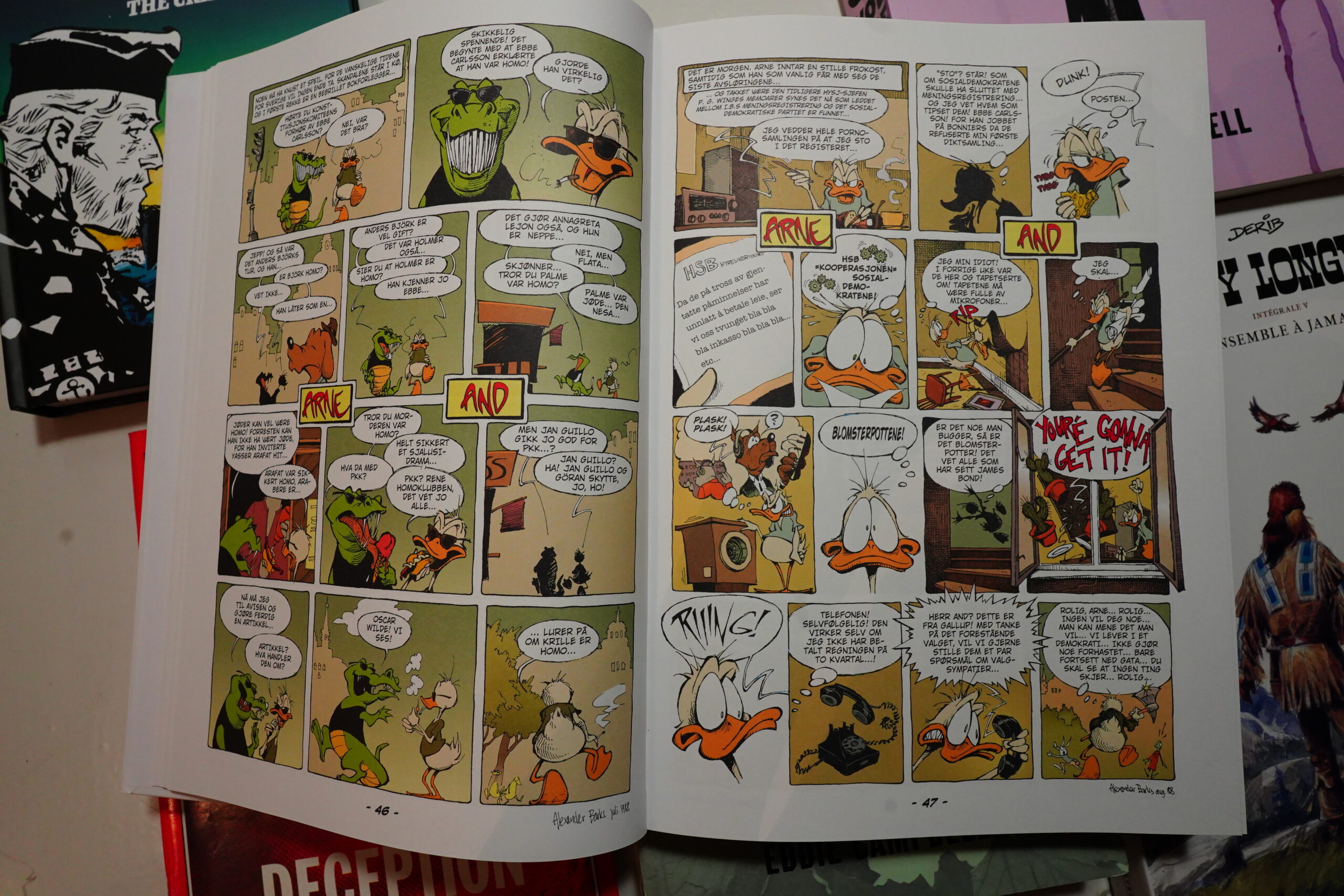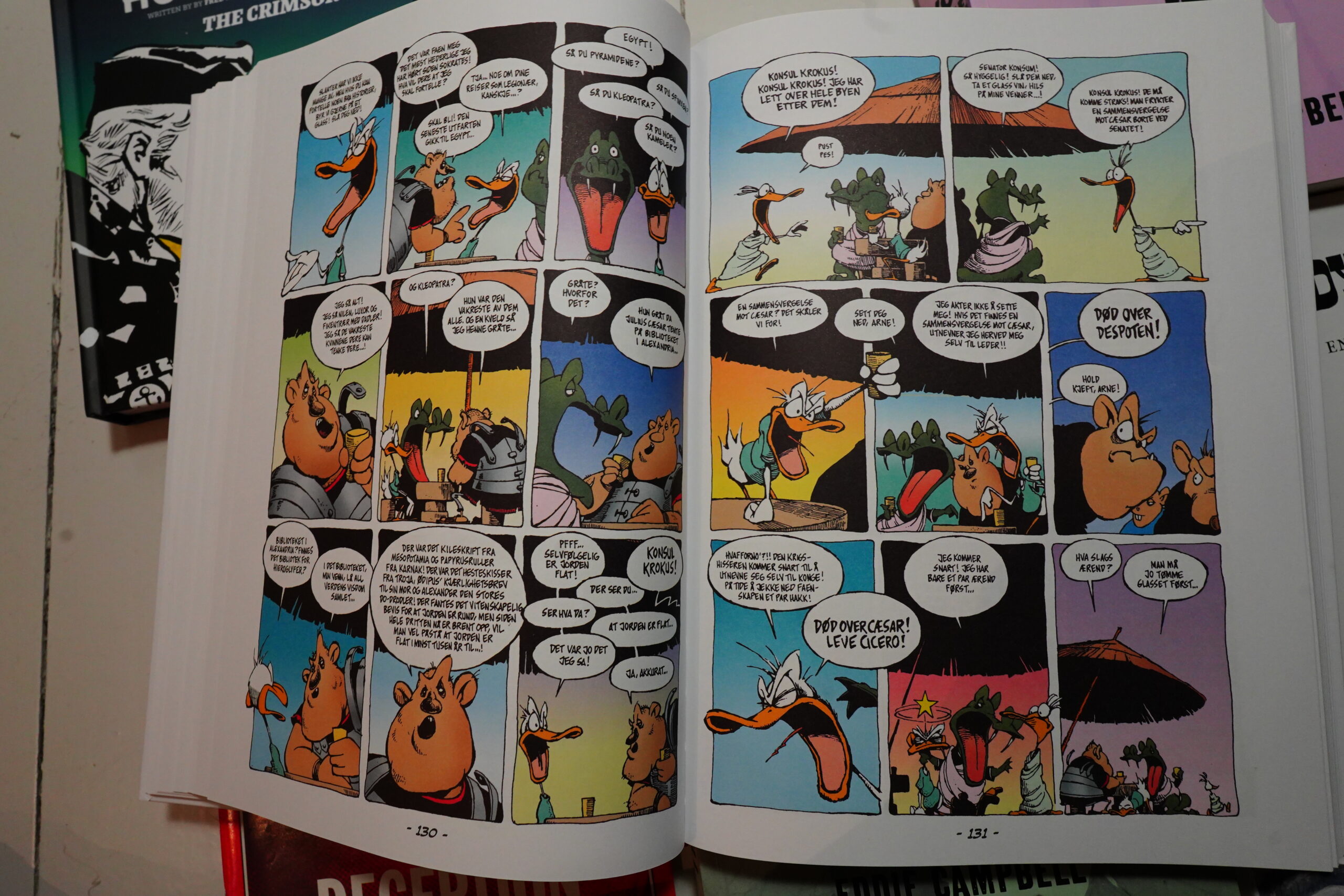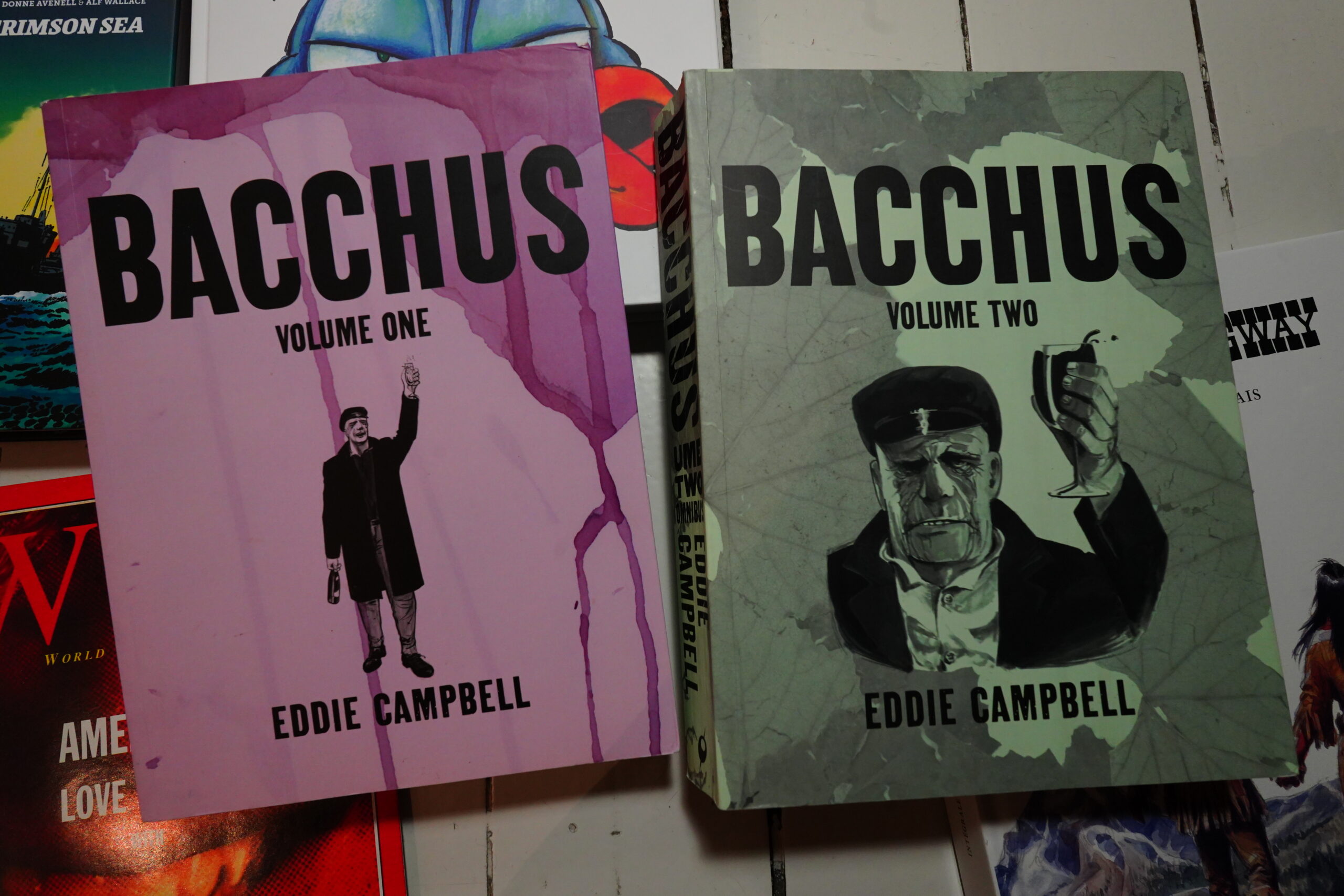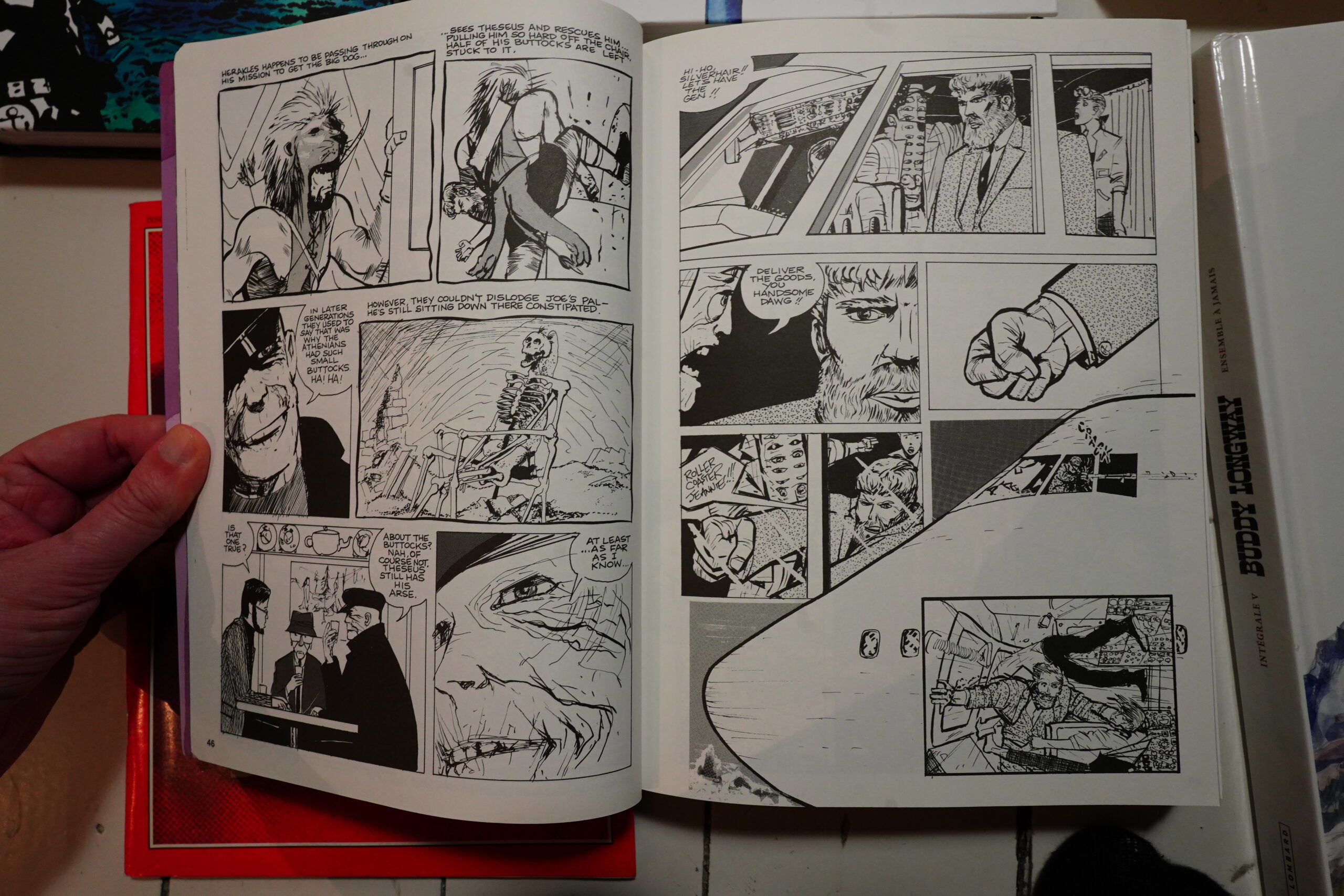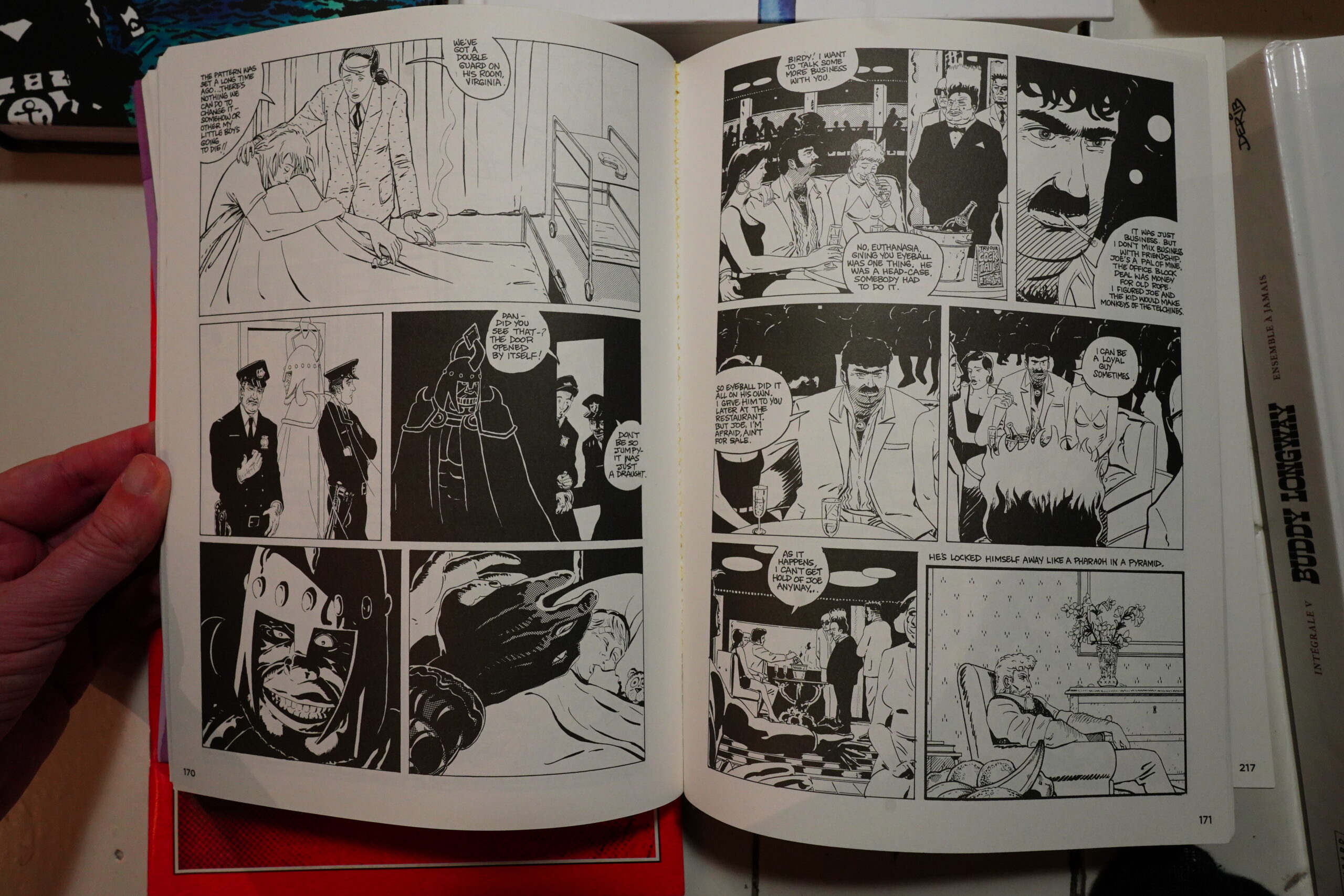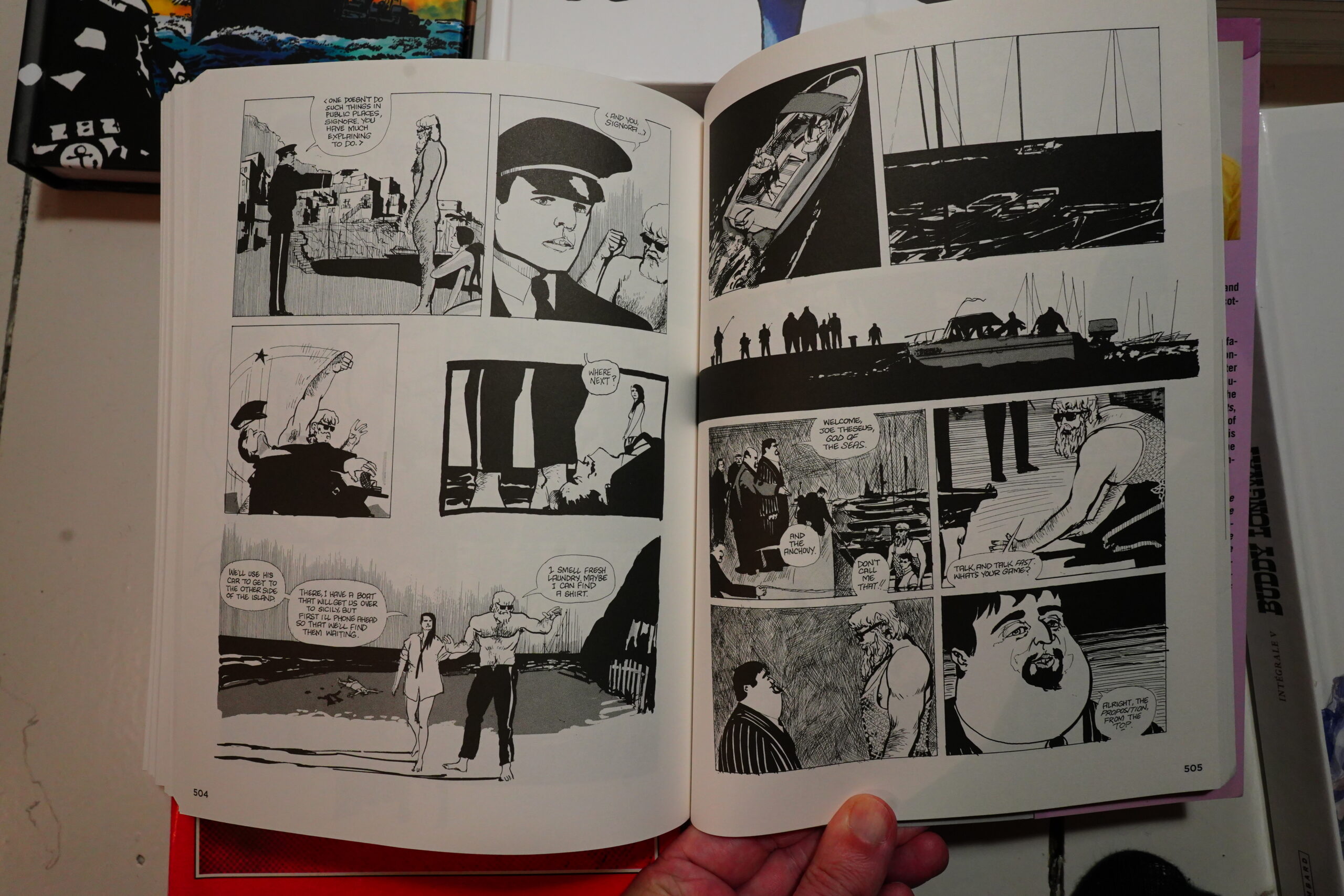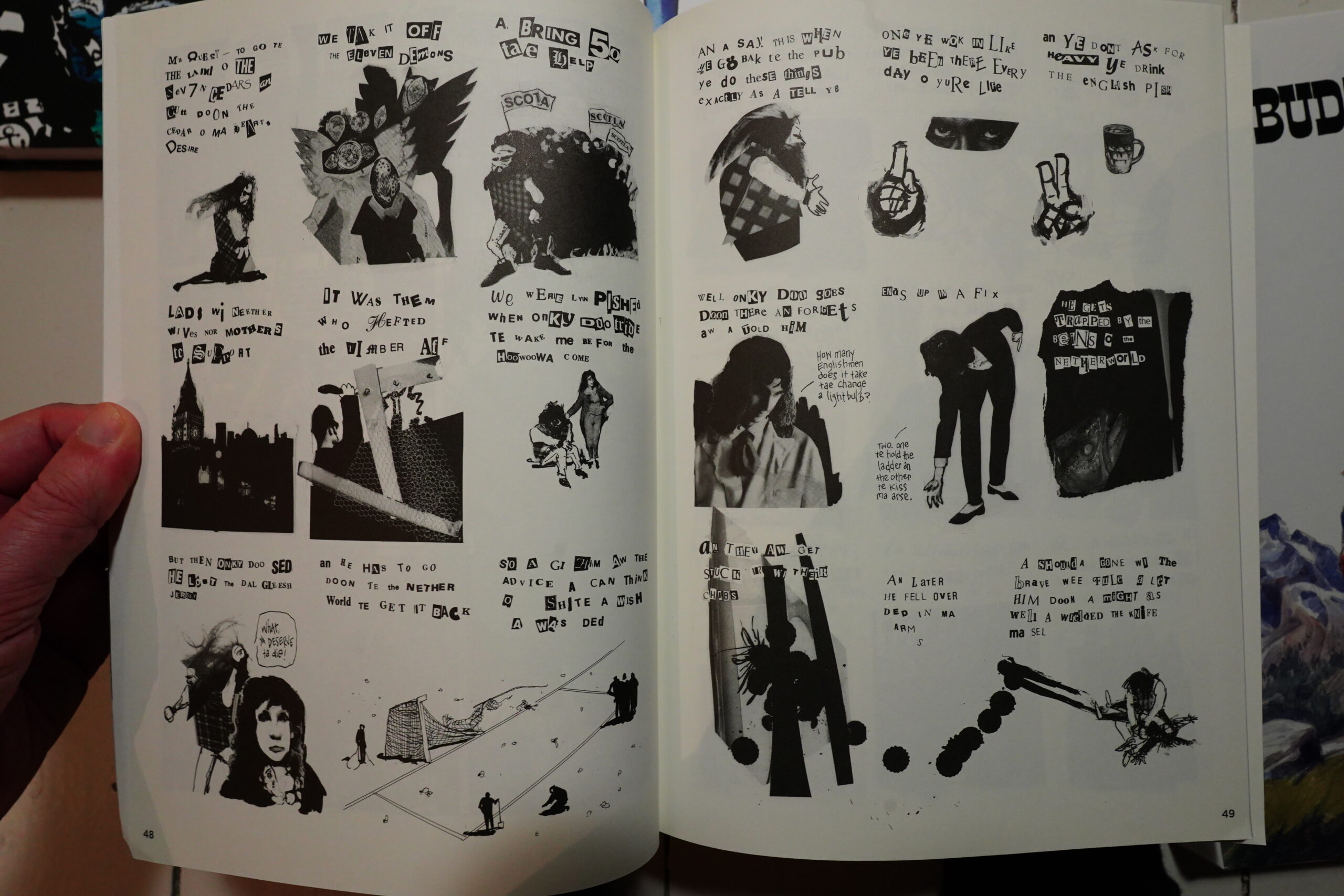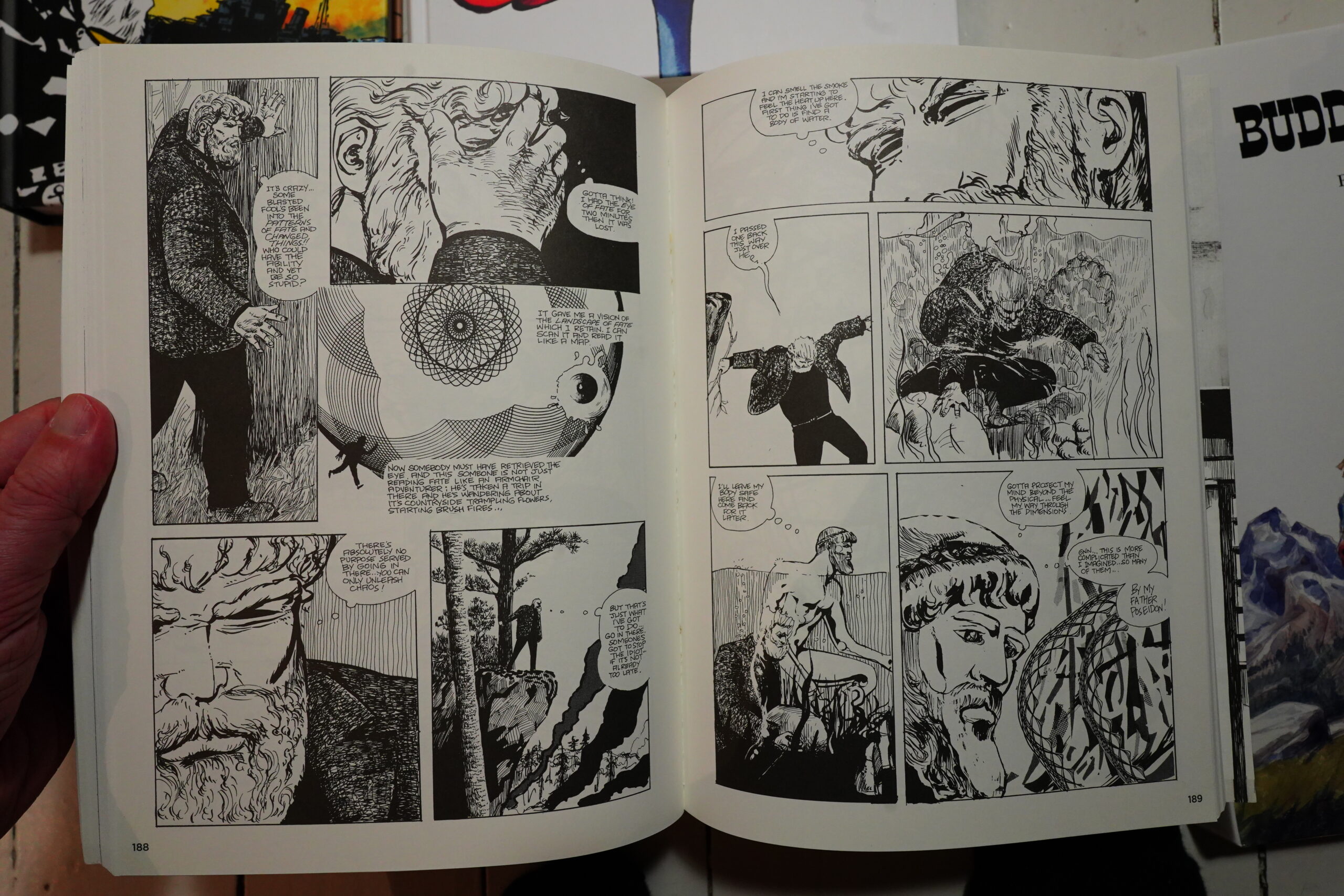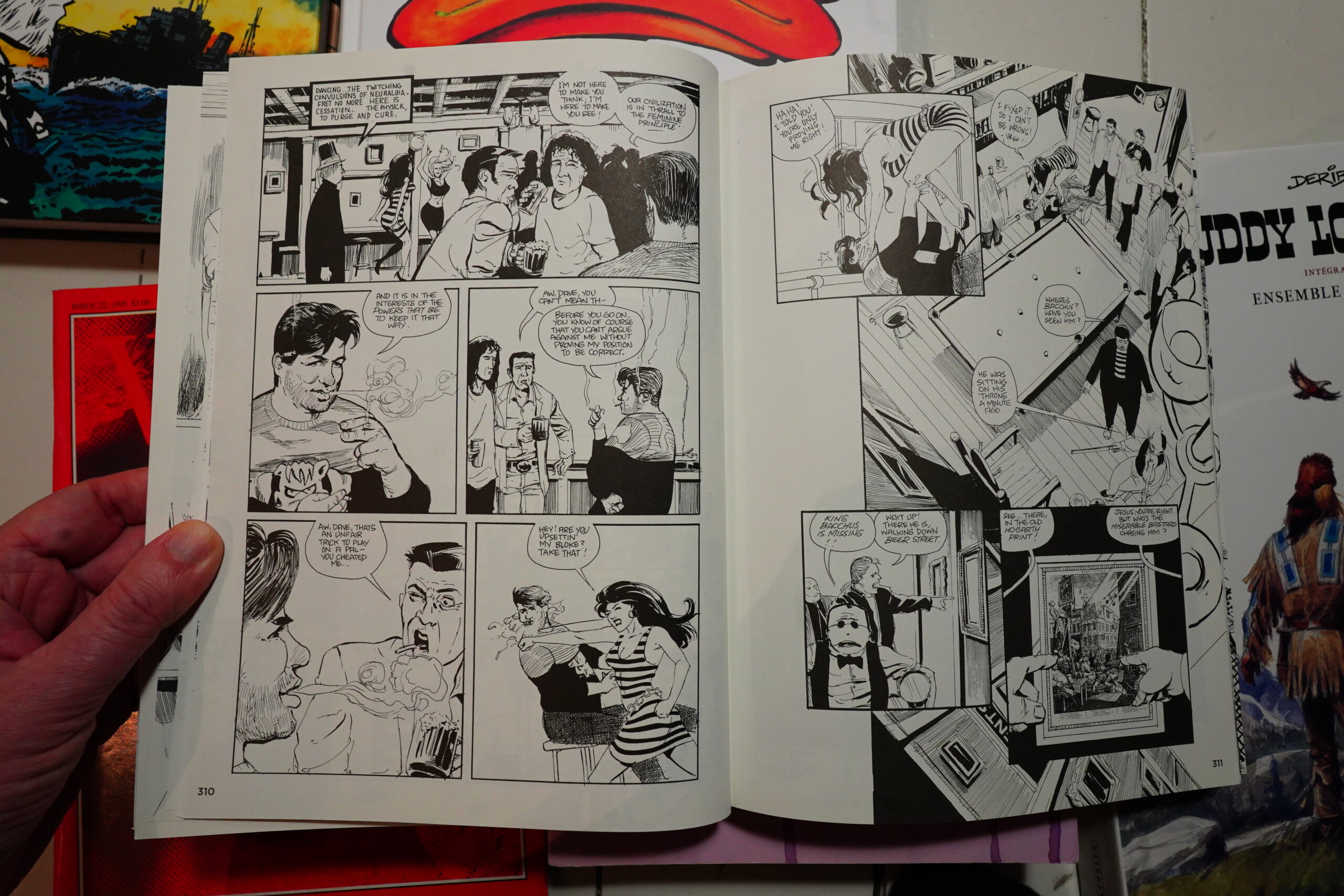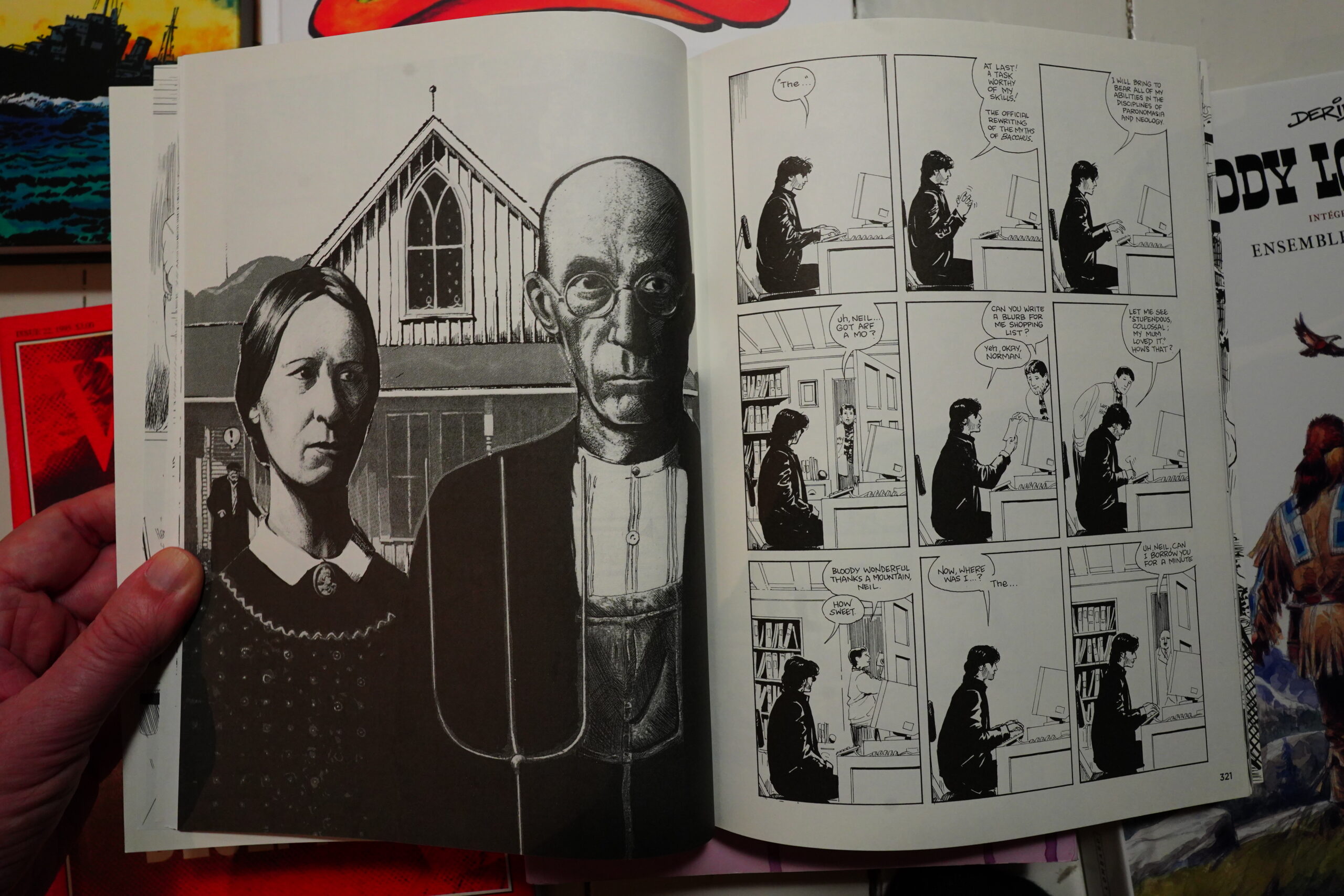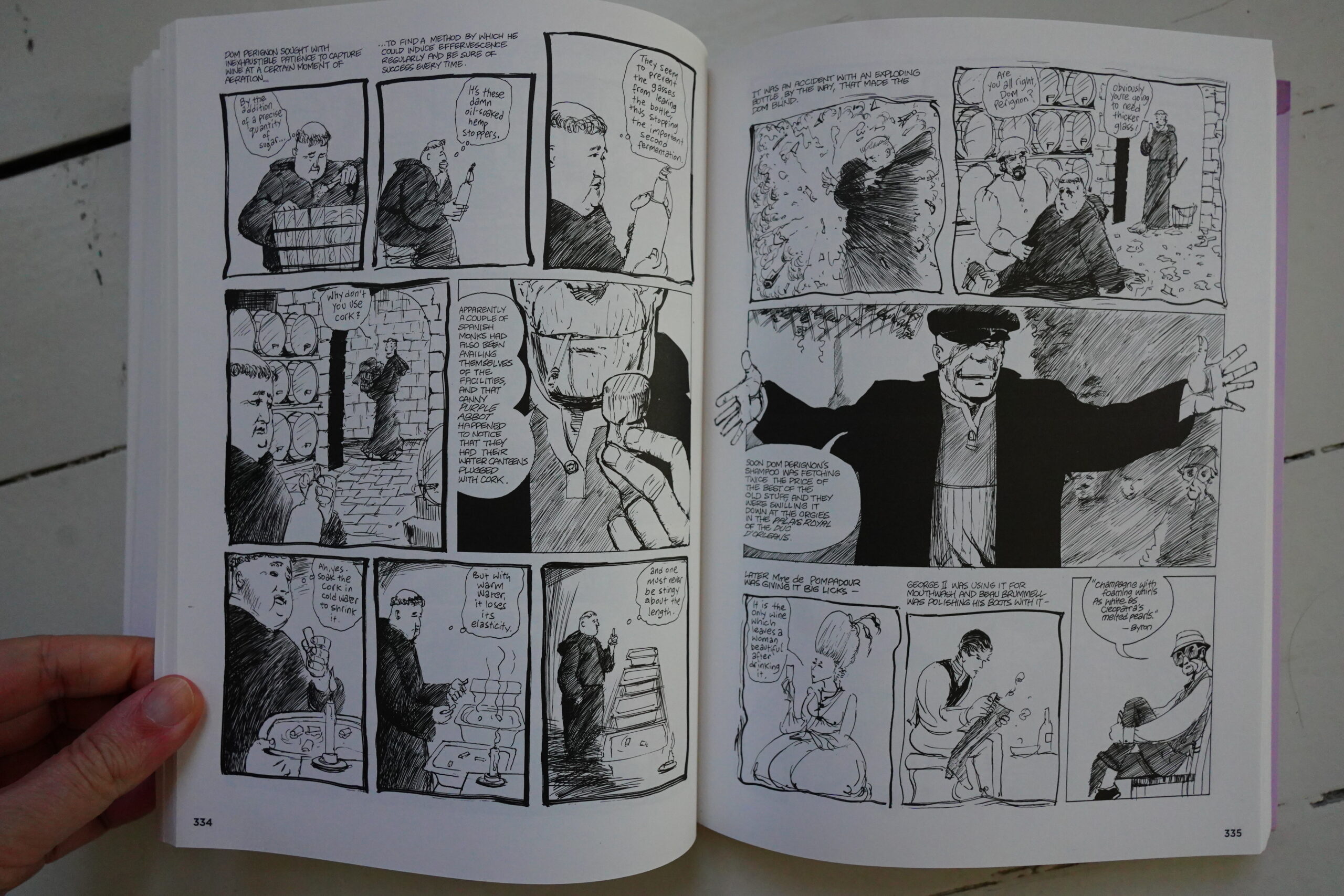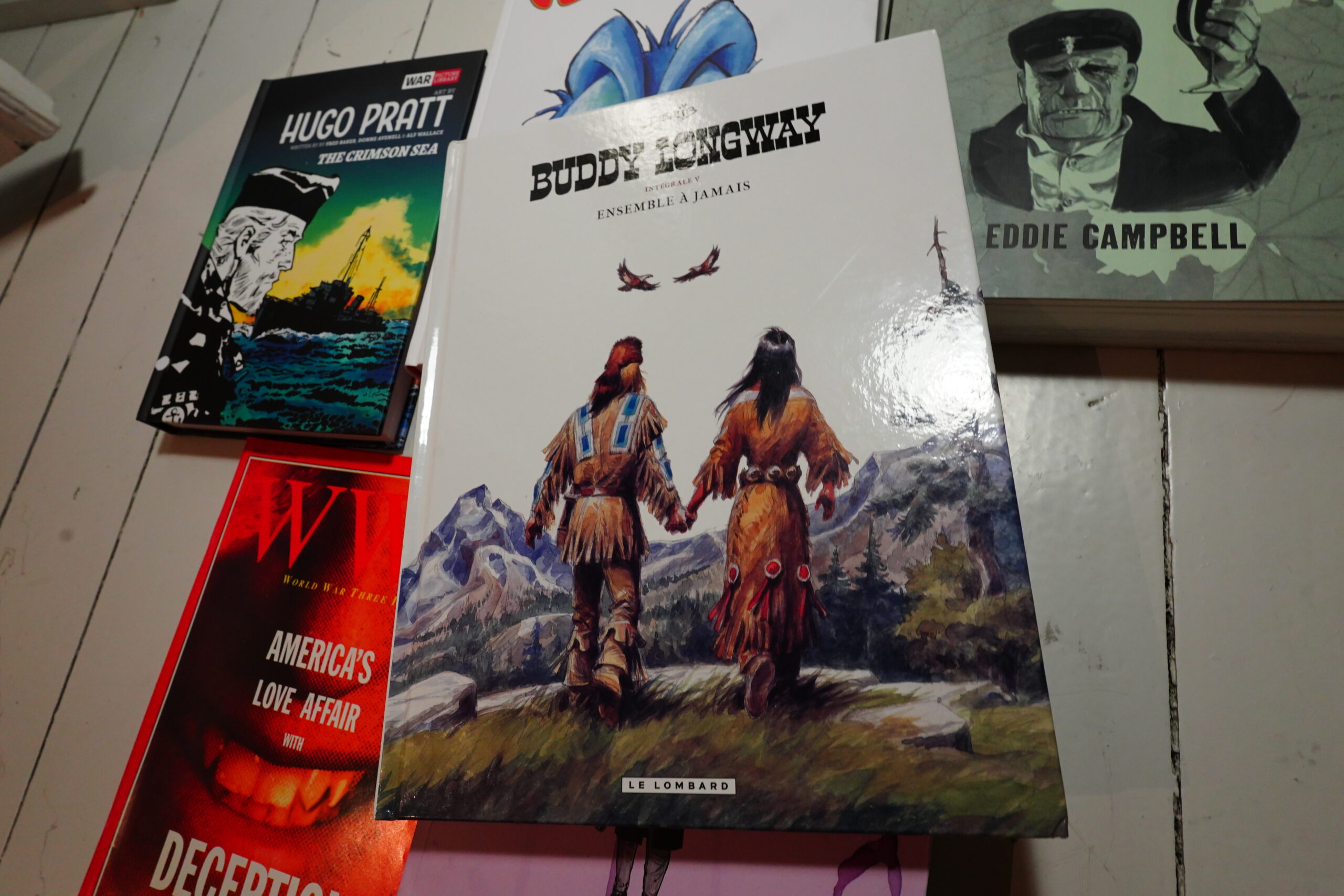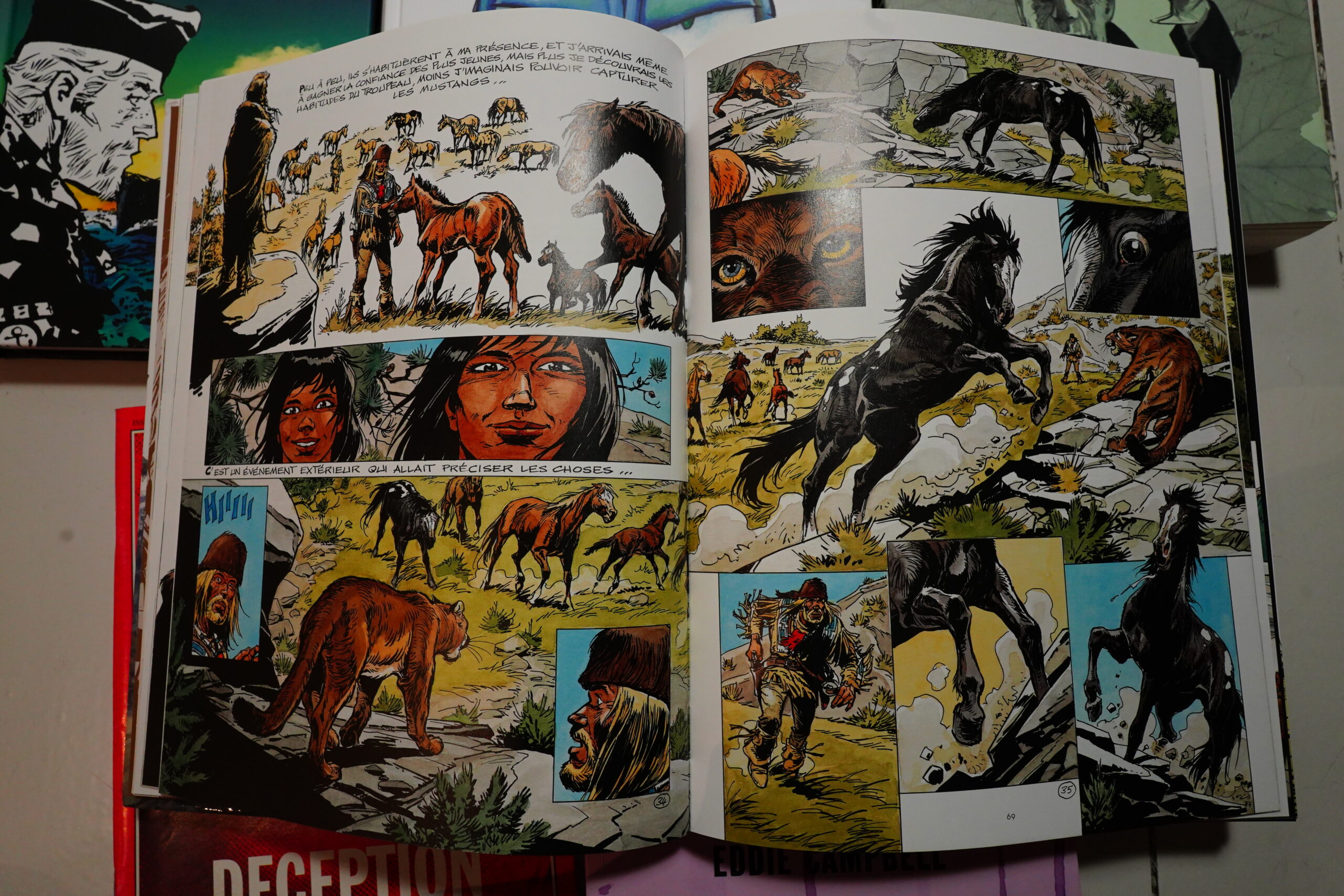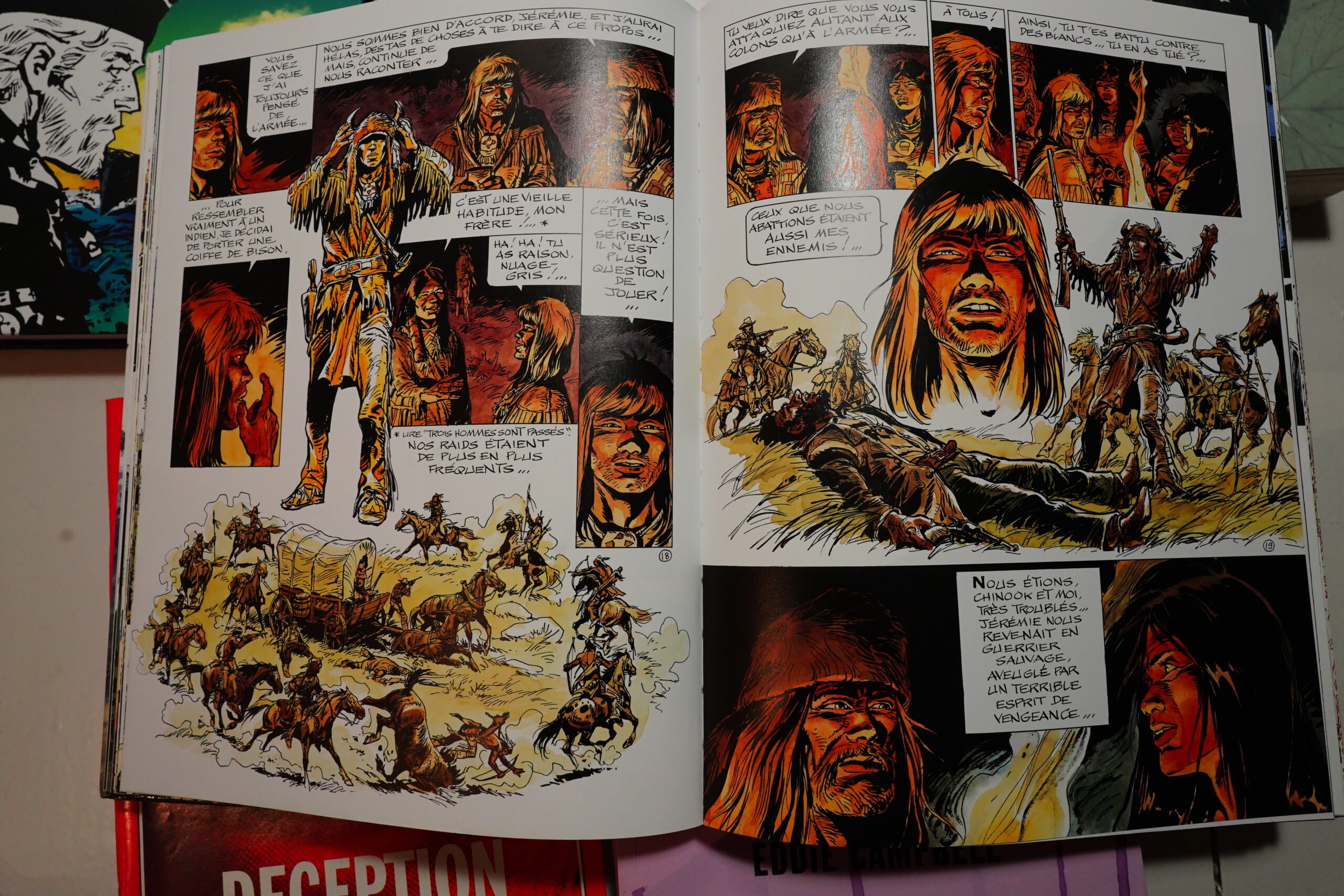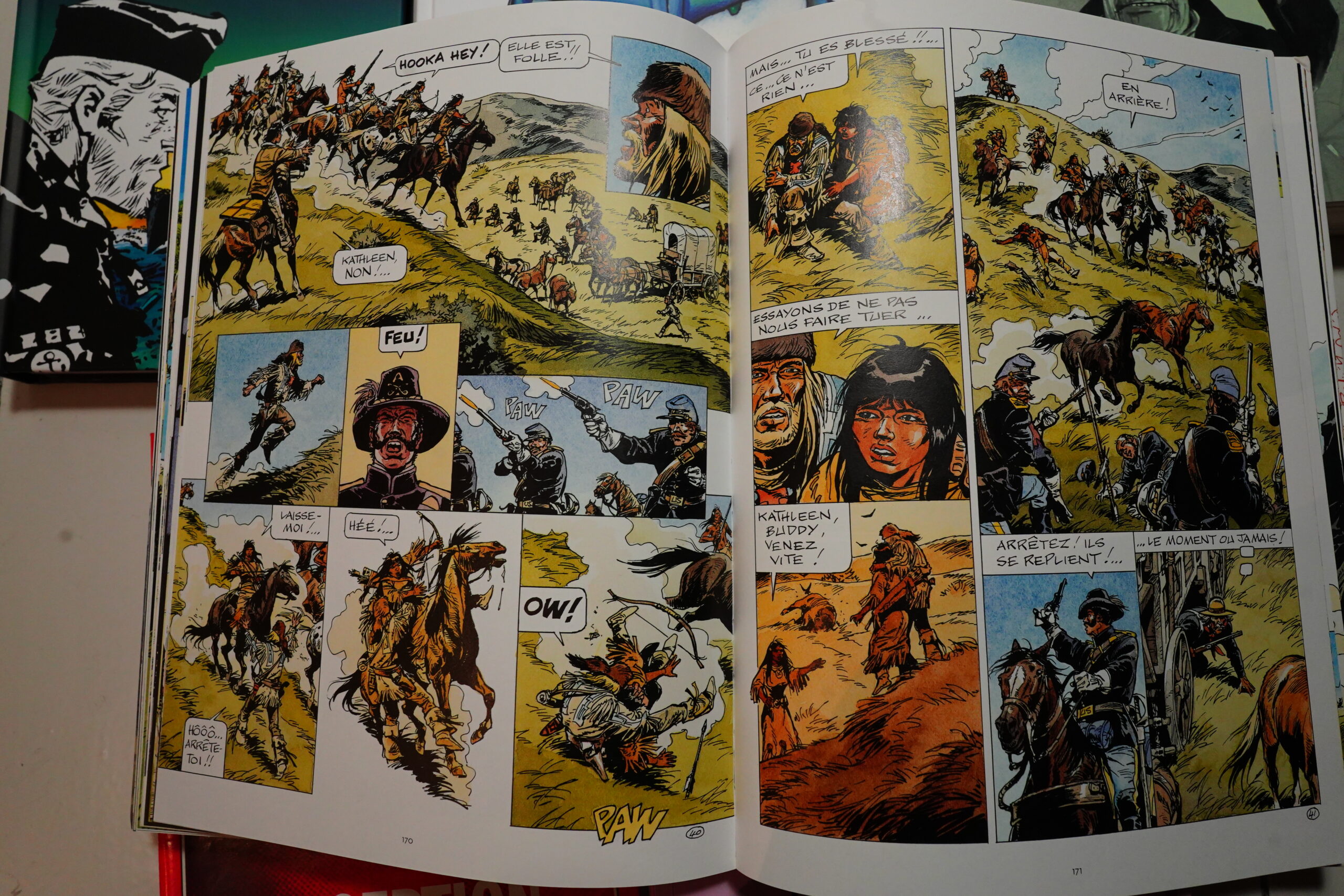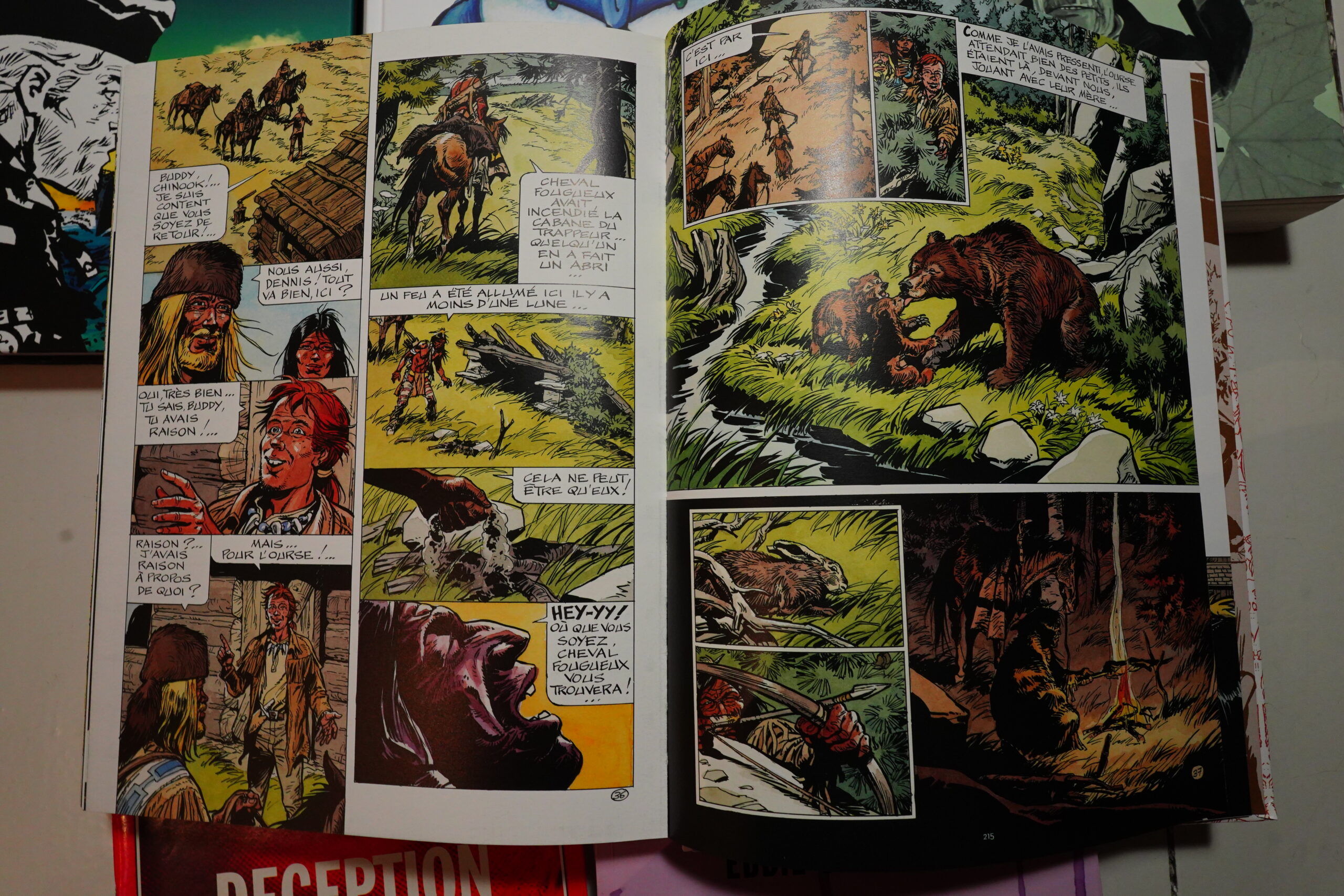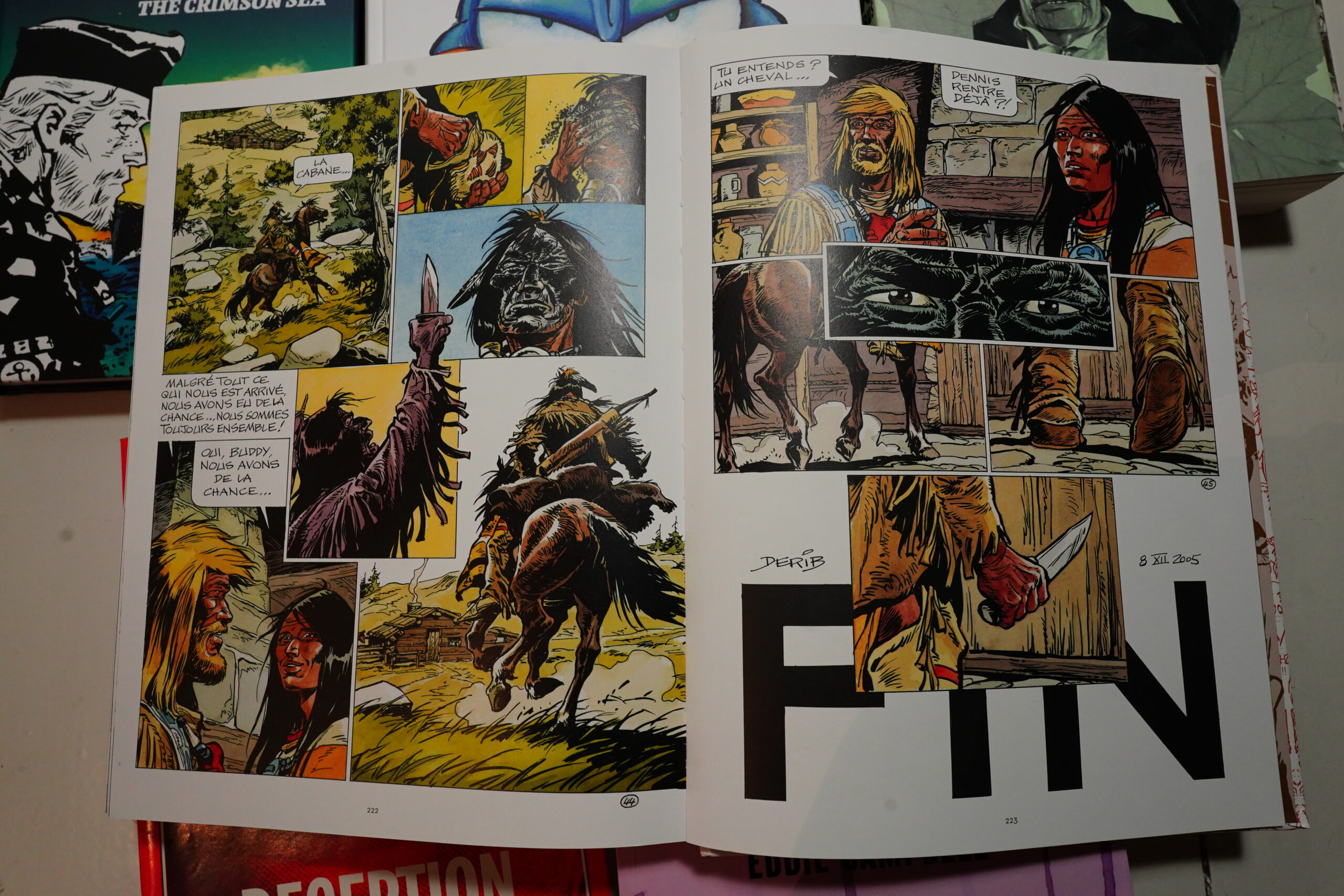Here’s some comics I’ve read over the past few weeks.
7.4kg!
I knew that Hugo Pratt had done a lot of British war comics, but I had no idea that these have been made available again. Five volumes so far! Each volume has four 64 (!) page stories! Yowza!
These were published in the early 60s, and were printed digest size on shitty paper. And I assume that these books were sourced from printed copies, because they look pretty gnarly in places.
But c’mon. It’s Hugo Pratt! The awesomeness comes through even if the reproduction leaves something to be desired.
I’ve read more than my share of British war comics in my day, and they’re usually pretty bad, so I had very, very low expectations going in. And none of these stories are written by Pratt, so. But — they’re good! They’re good stories! I was flabbergasted.
Many of the writers had themselves experienced WWII, and the stories are original and engrossing. Being digest sized, even if there’s 64 pages, there’s only room for two or three panels a page, so these aren’t huge stories… but they feel like it. They read like European albums in a way — there’s many characters, and they’re well-done, and the stories have a beginning, middle and end — it feels like we’ve experience something akin to a movie.
I was really taken by this book, and I’ve bought the four other volumes in this War Picture Library series.
I’m still reading my way through the World War 3 Illustrated issues…
This one isn’t the strongest I’ve seen.
Mainly because almost half? of the book was taken up by this story, which didn’t really … give WW3I.
This is a massive book of comic strips from the 80s/90s, featuring Arne Anka, a character with a look and a name that’s quite close to Donald Duck (well, the name in Swedish is). He was even sued by Disney, apparently.
This had a substantial fan base at the time, but I never quite got it.
And I didn’t this time, either. The artwork is great, but there’s so much verbiage for so few actually successful jokes that it just becomes a chore to read. I think. So I ditched it after one third.
Yes, I’ve read Bacchus by Eddie Campbell before, of course. I’ve got the Harrier (I think? Eagle?) books, and lots of the Dark Horse ones, and some collections, and 90% of the self-published series… but I’ve never read everything sequentially. So I thought it was about time, and I got these two volumes. It’s about a thousand pages in total.
Bacchus was Campbells attempt at a US-style comic book — like with super-heroes and stuff, but with Greek gods substituting.
And perhaps doing US style inspired him to get other people to draw the book from time to time, but unfortunately that’s not really as much fun as seeing Campbell’s own artwork (which I absolutely love).
After a few years, Campbell settled into a production line that allowed him to publish each story a bunch of times. A lot of this was first published in various Dark Horse anthologies, and then Dark Horse would publish a three or four issue mini series collecting the story, and then Campbell would publish a trade paperback collection, and then run the stories as backups in his Bacchus self-published series, and then collected again here. So I’ve read some of these things a lot of times over the years by buying them at random, but it is indeed a very different thing to read them all at once.
And unfortunately, some of it doesn’t really work that well in the collected package. Some bits are fun experiments, but when reading a lot of them one after another, it gets a bit fatiguing.
Still, when it works, it really works. I’d say the original Harrier series is the best, still, but there’s a lot of fun throughout.
I think towards the end, it overstayed its welcome a bit. I mean, it’s fun watching Campbell make fun of David Sim, right?
And making fun of Neil Gaiman, too — blurbing somebody’s shopping list — but it’s a bit insiderish, innit?
Campbell runs out of Greek myths to talk about, so we get anecdotes about Dom Perignon, who Campbell tells us invented champagne and went blind because the bottles exploded. But it does take some of the enjoyment out of the anecdotes Campbell tells if you were to google them:
The quote attributed to Perignon—”Come quickly, I am tasting the stars!”—is supposedly what he said when tasting the first sparkling champagne. However, the first appearance of that quote appears to have been in a print advertisement in the late 19th century.
[…]
The myths about Pérignon being the first to use corks and being able to name the precise vineyard by tasting a single grape likely originated from Groussard’s account.
Prior to blending he would taste the grapes without knowing the source vineyard to avoid influencing his perceptions. References to his “blind tasting of wine” have led to the common misconception that Dom Pérignon was blind.
Oh, the halcyon days of 1988 when nobody could check your bullshit!
But it’s a good story.
Still, I’d totally recommend getting these two books. They’re unfortunately out of print, but they can still be picked up pretty easily.
(These books don’t collect all the Bacchus material, in case you wondered.)
This is the final Buddy Longway collection — it collects the four albums Derib did after a decade-long hiatus.
The artwork is more beautiful than ever.
These four albums are basically a single history, and we finally see the family being reunited with their teenage son — but it turns out that (spoiler warning for the rest of the article — I’m giving everything away (well, it’s 20 years old by now, so…)) the son, Jeremie, has joined up with one of the last Native American rebels, attacking and killing settlers at random. His parents are not happy… and then Jeremie is killed.
Likewise, their daughter takes up with another band… and all Buddy can do is to stop her from getting killed, too. The daughter then leaves them to go off east.
Buddy and Chinook manage to get back on their feet, and we see them meet up with friends they’ve made throughout their lives…
… and this is how the series ends.
Except for the prologue, where we learn that Buddy and Chinook were indeed killed that day.
The series had a kind of built-in tragedy from the start, because it was always clear that Buddy and Chinook were living at the end of an era, where the Native American genocide was accelerating, and their way of life would soon become impossible. Still, I wasn’t really prepared for such a devastating ending. It’s a nine hanky book.
Snif indeed. And it’s true — the final album condenses everything about this series.
